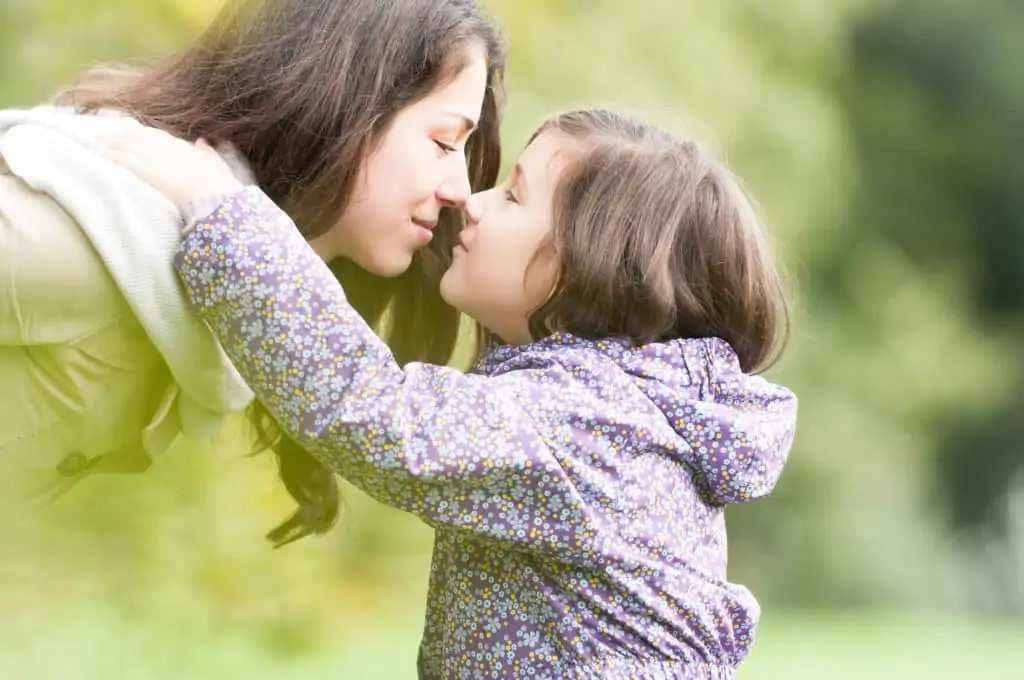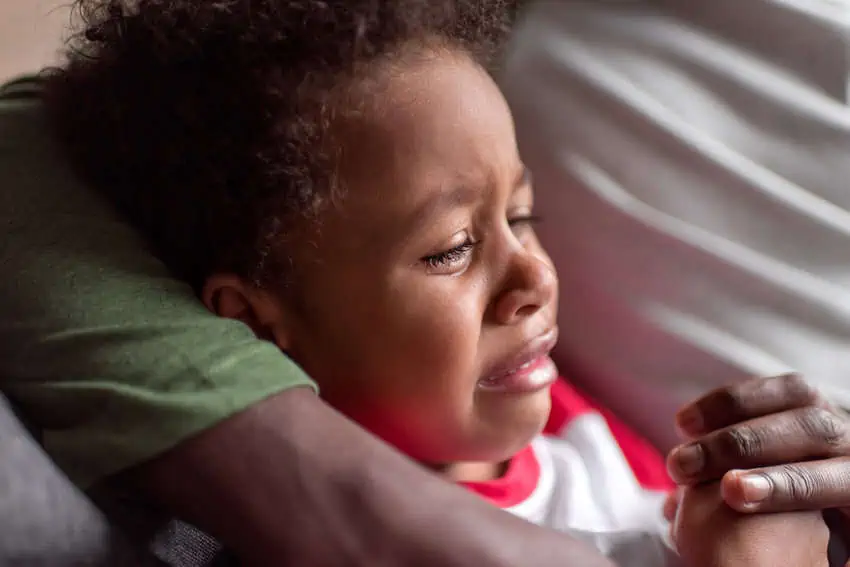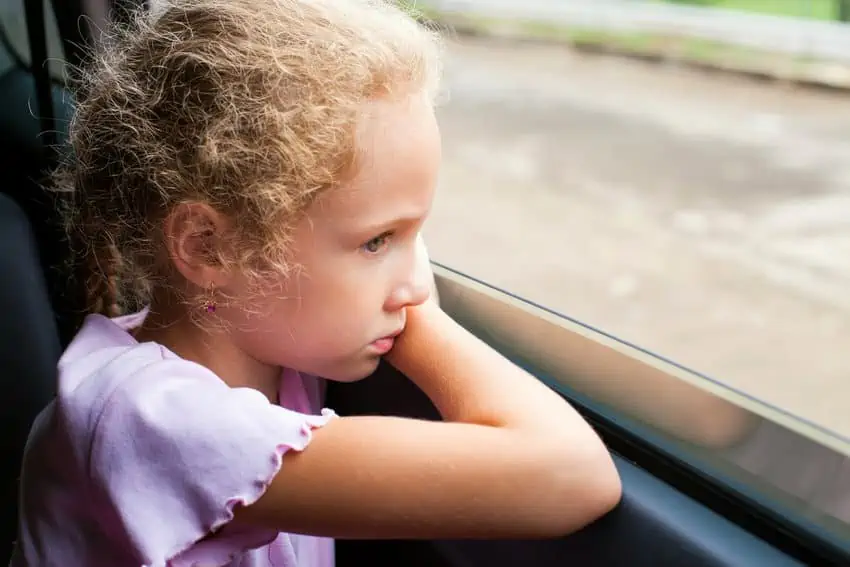What is Positive Parenting? Positive parenting is for parents who want to respectfully and lovingly set limits with their children, without breaking their spirit. It’s gentle guidance and positive discipline to guide our kids on the right path, without harsh consequences, yelling or punitive punishment. Read more about what is Positive Parenting, and what it isn’t.

Positive Parenting or Permissive Parenting?
The term “positive parenting” is a commonly used phrase in the parenting world, I’m sure you’ve heard it in every book or parenting magazine you’ve ever picked up.
I’ve heard a lot of people ridicule the term “positive parenting” and their rebuttal is that they believe it means allowing your child to have make the choices in your home, and that they’ll be raised with bad behavior, act entitled and disrespectful.
One thing positive parenting is not, is permissive parenting.
Positive parenting doesn’t mean you allow your child(ren) to decide how they want to be raised, or you give them free reign to run the show.
Positive parenting is about creating boundaries and an environment which will allow children to develop their emotions, communication and truest selves in a respectful and loving environment. The words you use, the way a parent reacts versus responds, gives choices and respects their child shows a child they are important.
There’s no belittling, no reacting with anger, or punitive punishments. Instead, using a calm and loving demeanor forms mutual respect and trust between the parent and child.
Positive parenting is about helping children learn to deal with situations in a respectful, loving way. Creating reasonable limits allows for open and positive communication, self-developments and these boundaries teach little one’s respect – for children, for you, and for those around you.
What is Positive Parenting?
- Choosing to be a good role model and example of behavior, communication, and acting (and responding) with love and empathy.
- Setting appropriate and healthy limits, and boundaries.
- Responding when limits and boundaries are not followed.
- Keeping in touch with our own reactions (the parent’s) and adjust so we respond lovingly and with empathy instead of knee-jerk reactions spurred from a place of anger, irritation, impatience or frustration.
- Praise the behavior you want to see in your child (Example: when you see your child clean up after themselves without being told, notice and praise them for this positive behavior.)
- Listen to your child instead of telling them what to do, how to feel or act.
- Set clear and fair limits allowing room for your child to make choices and explore, while also implementing logical consequences that make sense, when you need.
- Avoid harsh and punitive punishment such as spanking, smacking, and excessive yelling.
- Parents show children respect when they give a proper apology and say I’m sorry.
- Treat your children with respect and listen to them, show them they are valuable.
- Be empathetic towards your child’s learning and growth; not having too high of expectations for their behavior, attitude, feelings, emotional development, etc. Know what is age-appropriate and align your expectations.
- Show your children affection and love.
What Positive Parenting is NOT…
- Saying “good job” as a response to all things…
- Praising your child for a job well done.
- Permissive parenting.
- Allowing your child to dictate family dynamics.
- Setting limits and then having no follow-up or action.
- Not taking action to set limits.
- Not curbing bad and disrespectful behavior.
- Appeasing your child’s wants such as buying new toys when they ask or giving in when they pitch a fit.
- Don’t allow your child fail or be disappointed.
- Thinking your child has a right to do things or act a certain way, as they please.
Why Boundaries & Limits Are Important for Children
If you are unable to set limits and boundaries, this will teach your child that happiness is found in things and they’ll always be chasing “what’s next” without much long-term satisfaction.
Research shows that children who are unable to process and handle their emotions because they weren’t allowed to develop the tools to recognize them in childhood, cannot respectfully respond using their words and have calming tools at their disposal.
Building a healthy relationship with open communication about discussing feelings and the range of emotions adults and children exhibit daily, will build emotional intelligence.
Positive parenting reinforces to the child that the parent is in charge (in child development, this is called authoritative parenting style,) and this is a tremendous comfort to little ones.
A child who feels like they have all the power, feels out of control and because of this, are unable to control their emotions and little bodies. Being in charge scares children because developmentally, they are incapable of processing this much power.
Kids need to know the adults around them are a safety net to help deal with situations and their feelings. When a child realizes they can communicate to their parents when they’re sad, angry or happy, the trust in your relationship with them becomes irreplaceable.
Think of the longer term… children without limits in childhood, will be affected as adults. As adults, they will continue to have a hard time creating limits for themselves in the workplace, with friends and in relationships.
Practicing Positive Parenting with Positive Language
Negative language impacts children; it creates confusion & makes children feel discouraged they can’t do anything right, as well as low self-esteem. Negative wording is hard for children to understand because they don’t know what you want them to stop doing and what to do instead. The solution? Using positive language.
Researched shows how negative language impacts children – particularly how much confusion it creates, the internal resistance this stirs inside of them and that continued negative language makes children feel discouraged they’re always doing something wrong or “being bad.”
Negative wording is hard for children to understand because they don’t know what you want them to stop doing and what to do instead.
It’s also discouraging to be told “no,” “stop,” “don’t” all the time, and can even make children feel like there is no point in trying to do right.
Read the full article on how to improve the way we talk to children using positive language.
Examples of Turning Negative Language into Positive Language
Negative Words & Positive Words
Stop Crying –> Do You Need a Hug?
That’s Enough –> Let’s Rewind and Try It a Different Way
Don’t Be a Quitter –> That’s A Tough One, Would You Like Help?
Stop Running –> Please Walk
Don’t Do That –> Gentle
Don’t Touch Him –> Let’s Keep Our Hands to Ourselves
Stop Whining –> Please Use Your Words
Don’t be Nervous –> It’s Ok To Feel Nervous, Sometimes I Feel That Way Too
Life Isn’t Fair –> I Know How You Feel, What Can I Do to Help You?
No Yelling –> Let’s Use Our Inside Voice Please
Don’t be a Scardy Cat –> It’s Ok To Feel Scared, I’m Here With You and Will Keep You Safe
No Hitting –> Please be Gentle*
*Adding please to any positive response is a good help
You aren’t telling them how to feel or what to do, you are responding kindly and asking them to do reframe their own reaction.
Positive parenting is not permissive parenting. It’s about setting reasonable boundaries and limits for your children, and teaching them about emotions and behavior in respectful and loving ways.
Want even more?
Shop All Parenting Resources
Shop all of our parenting resources from self-regulation tools and managing big emotions to building self esteem and confidence. There are resources for all seasons of life!







